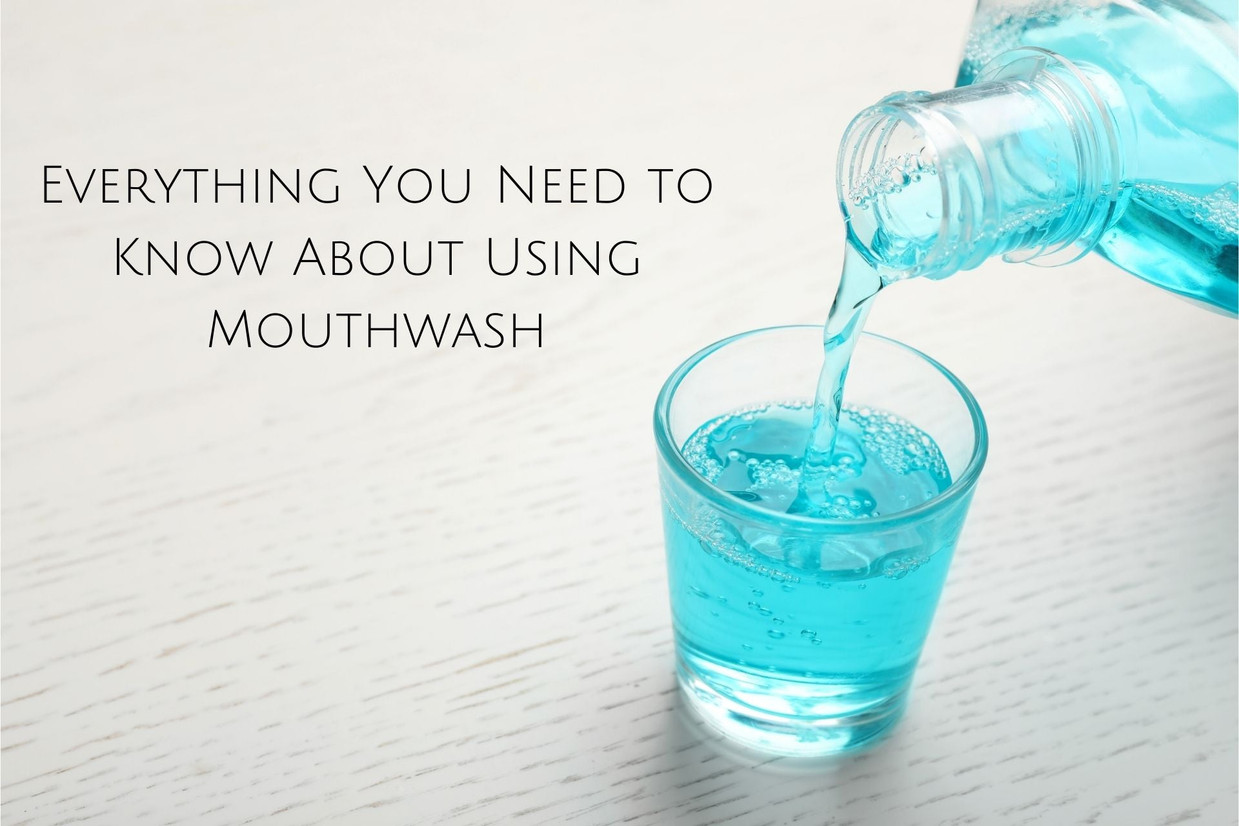Everything You Need to Know About Using Mouthwash
Mouthwash is a crucial part of oral hygiene. It helps to keep cavities, plaque & gum disease at bay. Read to know everything you need to know about using mouthwash.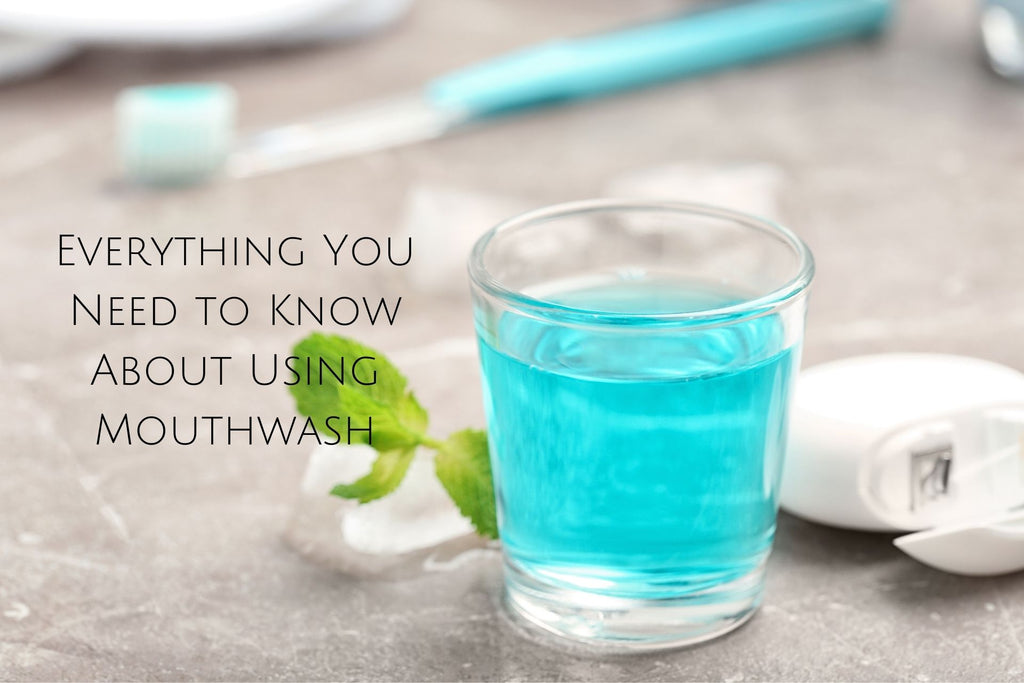
With today's busy life, we all are trying to make time for self-care, exercising, regular health checkups, beauty and self-care, and oral health care.
While struggling to do it right, we tend to turn to the internet to understand the Do's, Don'ts, and the how. Let's understand "Mouthwash" as an integral part of completing your oral health care. A liquid that is swindled in your mouth and helps for a short while to enhance oral health is a mouthwash or oral rinse.
As simple as the concept of mouthwash is, we all have a lot of questions to do it right. If you, too, have ever thought something like, "How to use mouthwash?", "How often to use mouthwash?", "How many times a day should I mouthwash?", "How to correctly use mouthwash?" then this is an article to help you with some answers.
The first thing to know about mouthwash to understand its importance is, it's not just a breath freshener. It can reduce tooth decay, plaque, gum diseases, etc. Once you know this, you will make it a part of your oral health care routine. So remember, mouthwash is not just perfume.
The must-knows of mouthwash -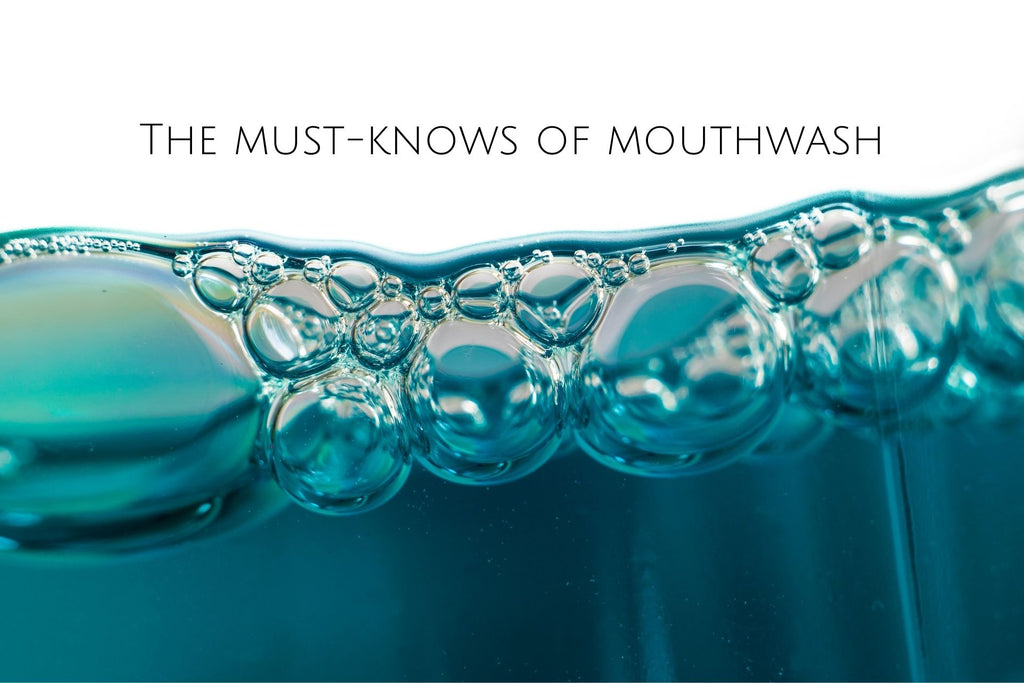
- Mouthwash is not a replacement for brushing & flossing. Brushing and mouthwash need to go hand in hand for you to get the best results.
- It will not cure serious dental or gum problems. It is only going to help you maintain oral health and reduce the possibility of some oral diseases.
- To see results like teeth whitening, reduced plaque, you need to be patient. Just 1-2 uses will not give you the desired results.
- It is always better to ask your dentist to recommend a mouthwash that is best suitable for you.
Mouthwash Ingredients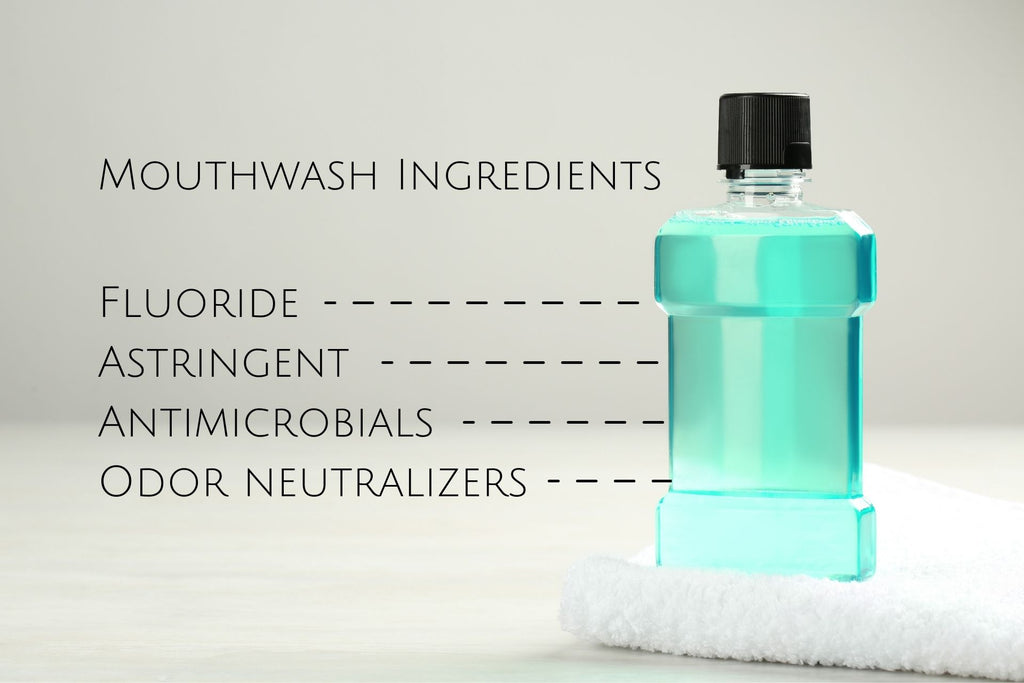
Following are the most common ingredients available in every brand's mouthwash.
Fluoride - Fluoride is a chemical element. It aids in the prevention of tooth decay and cavities.
Astringent - It's a form of deodorizer that can mask bad breath for a short time.
Antimicrobials - Antimicrobials are substances that destroy bacteria. They kill the bacteria that cause bad breath, plaque, and gingivitis, a gum inflammation that occurs early in gum disease.
Odor neutralizers - Odor neutralizers are substances that absorb odors and make them less noticeable. They can attack the source of bad breath.
How to choose the best mouthwash?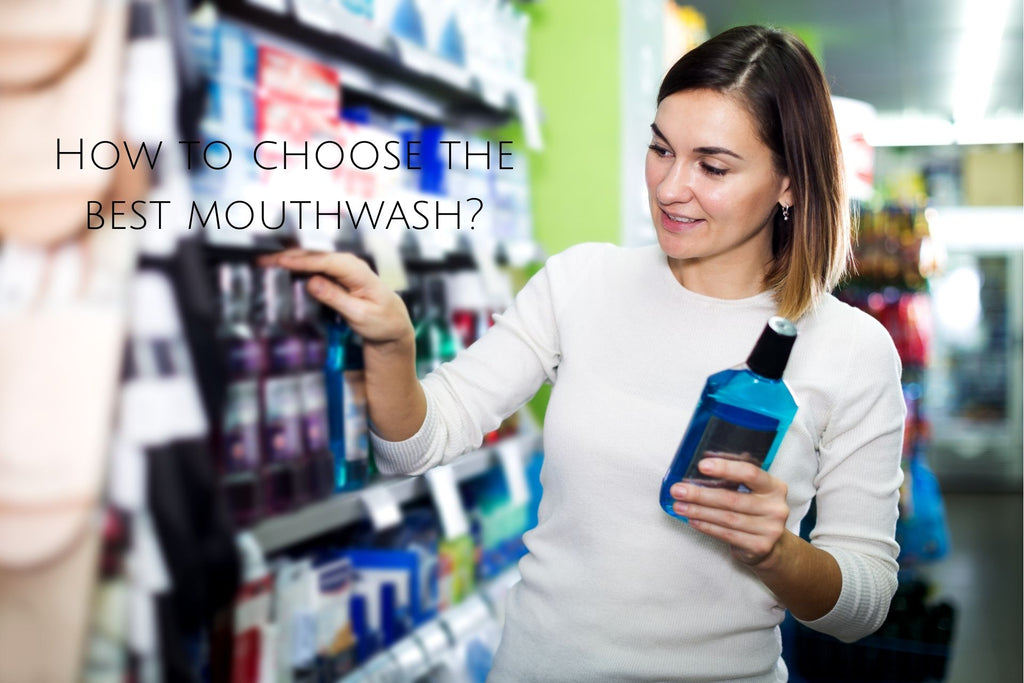
To get the best results from the mouthwash you used, you must choose the right mouthwash product. It totally depends on the type of dental problem you're facing. Here are a few pointers to help you determine which mouthwash brand is best for you oral health.
- If your mouth dries out quickly, using a mouthwash free from alcohol is a wise choice. Since alcohol is a drying agent, mouthwashes that contain alcohol can aggravate your dry mouth.
- A mouthwash that contains chlorhexidine elements can help people with various types of gum diseases. However, if you need care, make sure to obtain expert advice from your dentist.
- Dental surgery or mouth sores can cause severe pain in your teeth or mouth, which can be relieved with a medical mouthwash that contains benzocaine elements. Mouthwashes containing saltwater can also provide temporary relief.
- Are you facing a tooth decay problem? Choose a mouthwash that has extra fluoride chemicals to better shield teeth from acid attacks and decay.
- If you're looking for a quick breath freshener, try a cosmetic mouthwash with a pleasant scent.
How to use mouthwash?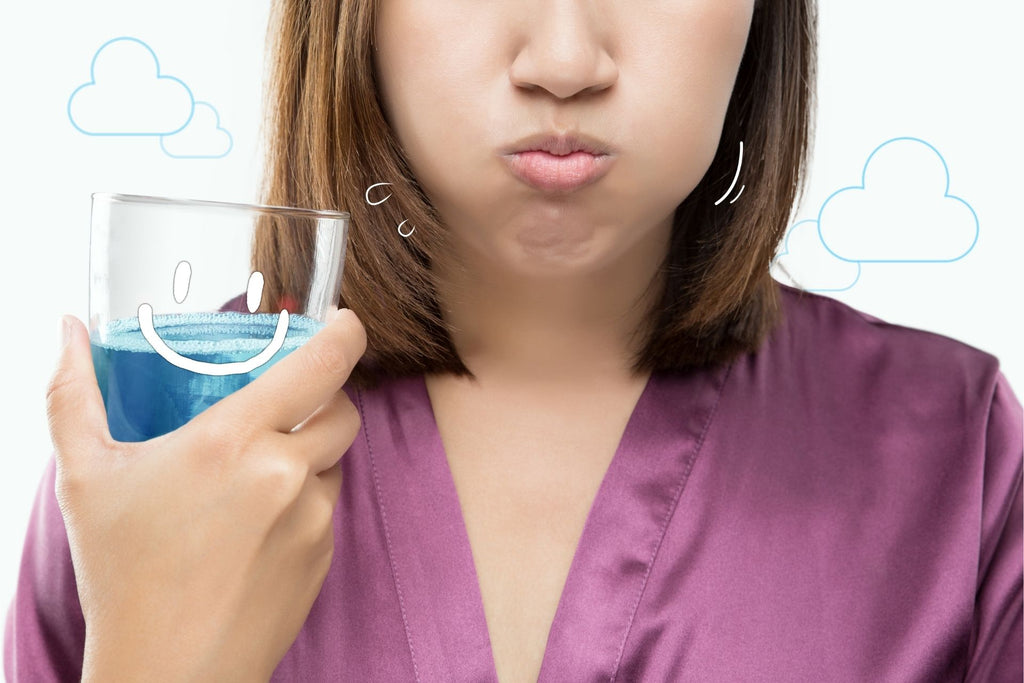
- Pour the mouthwash in the container provided with the product. Make sure to take only as much as instructed.
- Empty the entire content of the container in your mouth and swish it well.
- Swish it for 30-60 seconds. Lesser than that will not be of much help, and longer than that can do more bad than good. Remember, you should not swallow and spit it out after gargling for the said time.
When to use mouthwash?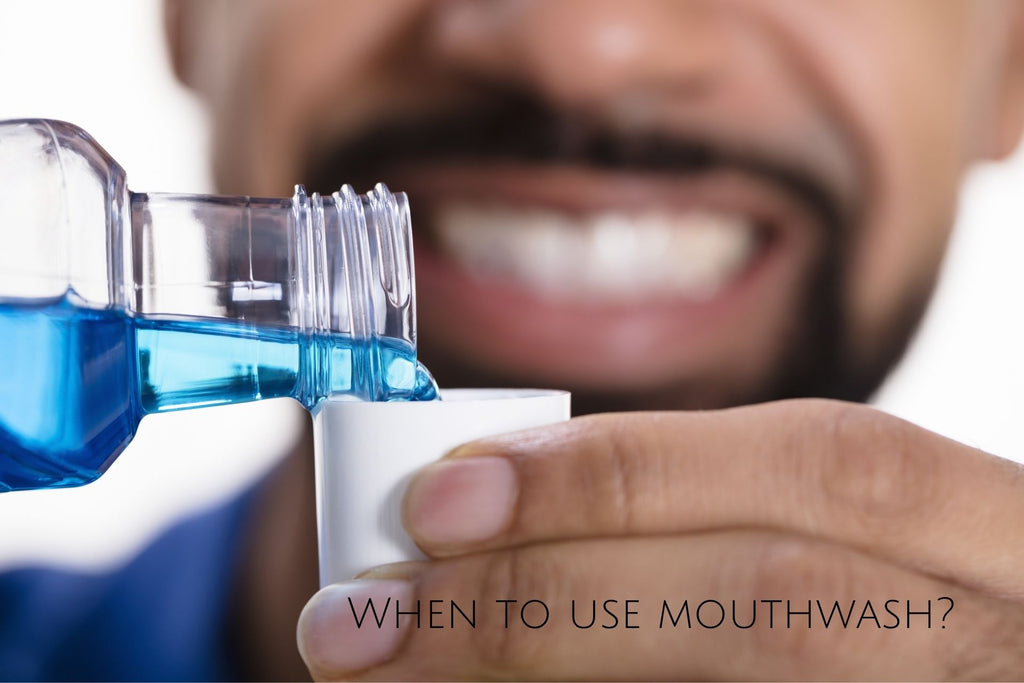
There is no hard and fast rule as to when one should use mouthwash. Some experts suggest it is more effective to use it right after brushing and flossing. But one needs to remember that if the toothpaste you are using has fluoride, it is suggested otherwise.
To avoid washing away fluoride, you can opt to use the mouthwash after a gap of some time from brushing & flossing or at a different time of the day, as suggested by the National Health Service (NHS).
Pros of mouthwash -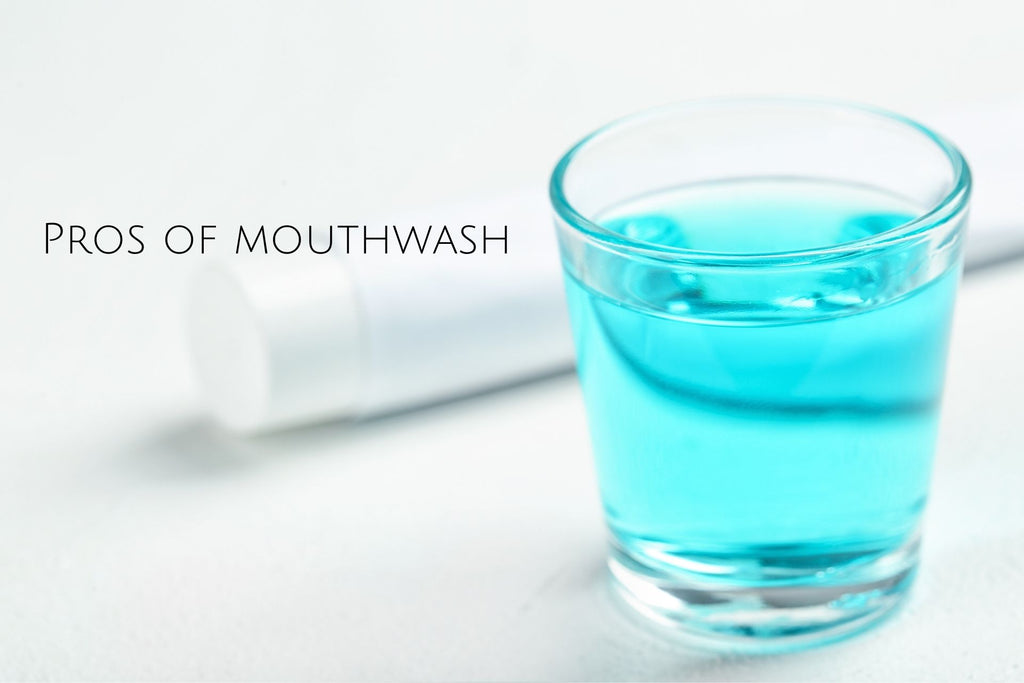
- Teeth whitening - One of the basic pros is whitening teeth. The mouthwash usually contains a bleaching agent, which will give you clean, white teeth over some time.
- Safety from cavity - If your mouthwash contains fluoride (like most toothpaste), then it fights the cavity. The plus point being mouthwash will clean corners that one can miss while brushing.
- Helps with sensitivity - Sensitivity is a common problem that most people face. Regular use of mouthwash helps with sensitivity if you use one that contains Arginine. Consultation with a dentist before choosing the right mouthwash is the right way to go about it.
- A helping hand in safe pregnancy - A study says that bacteria from periodical diseases can enter a pregnant woman's bloodstream, which can stimulate contractions, resulting in preterm labor.
- Soothing agent for mouth ulcers - Mouthwash rinses away the bacteria, which primarily is helpful when one has mouth ulcers or sores.
Cons of mouthwash -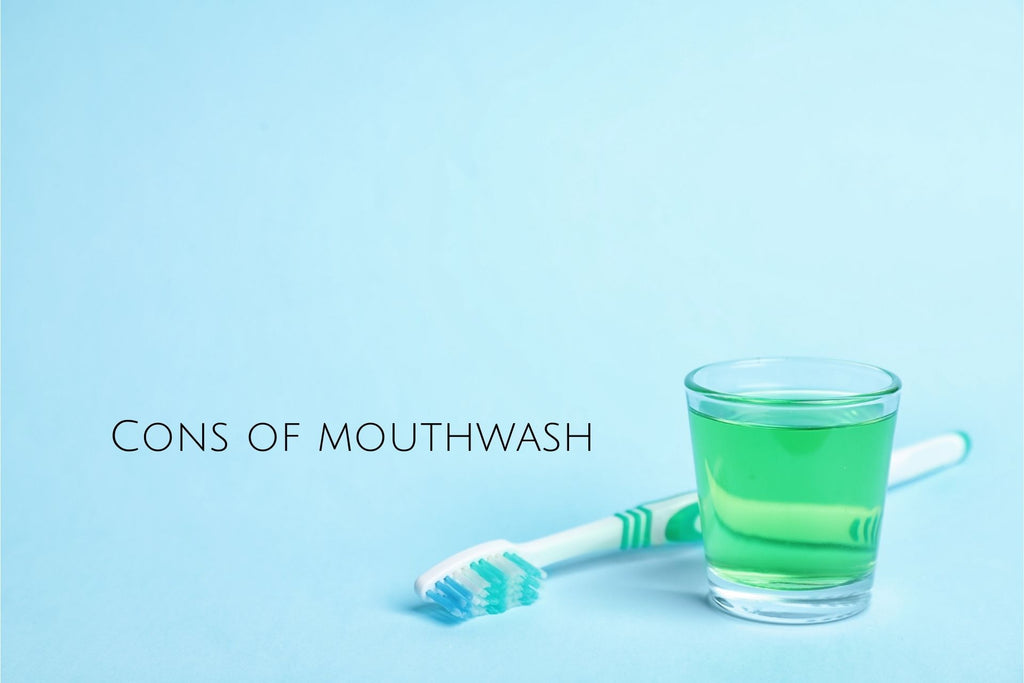
- Reduces benefits of toothpaste - Some experts believe that mouthwash every day, especially right after brushing, will reduce the benefits of toothpaste.
- Can irritate ulcers/sores - Mouthwash contains a small amount of alcohol; if this proportion is high, it can irritate the ulcers/sores instead of soothing it.
- Masks bad breath - Sometimes, with someone facing serious bad breath problems, the mouthwash can end up only masking it instead of curing it.
- Risks of oral cancer - Though nothing is proved, there is a debate on whether mouthwash can cause oral cancer. To be safe, speak to a dentist before deciding on which mouthwash to use.
Things to do additionally to increase the effects of a mouthwash -
- Brush your teeth twice a day.
- Avoid food and drinks containing high sugar like soda, chocolates, etc.
- Have a balanced diet.
- Make sure to change toothbrushes frequently.
- Get a regular consultation and checkup from your dentist.
Some random facts of mouthwash -
- Mouthwashes are therapeutic or cosmetic. One needs to select based on your need.
- Children below the age of 6 are not supposed to use mouthwash, & for children above the age of 6, the suggestion from a dentist is suggested.
- Depending on which type of mouthwash you decide to use, you might have to dilute it before using it.
- Mouthwash can help reduce tartar.
- The most beneficial types are fluoride and antibacterial, as these are the ones that will help prevent oral diseases.
So, whether you aim to freshen your breath, whiten your teeth or clean your mouth in all corners, you need to make a habit of using mouthwash regularly. It is fit to say mouthwash is a must to complete your oral healthcare, and we cannot agree more. So, plaque or bacteria or bad breath, swish it away!!.
Recent Posts
-
The New Generation of Indian Skincare: Bridging Ayurveda and Dermatological Science
Introduction: For millennia, Indian royalty relied on Kumkumadi Taila—the legendary saffron-infused
-
Red Nails vs Pink Nails: Which Looks More Romantic for Valentine’s Day?
Introduction: Valentine's Day approaches, and with it comes the timeless question: red nails or pink
-
The Wellness Valentine: Valentine’s Day Gift Ideas for Health & Wellness Lovers
Introduction: Valentine's Day has evolved beyond traditional red roses and chocolate boxes. In today

